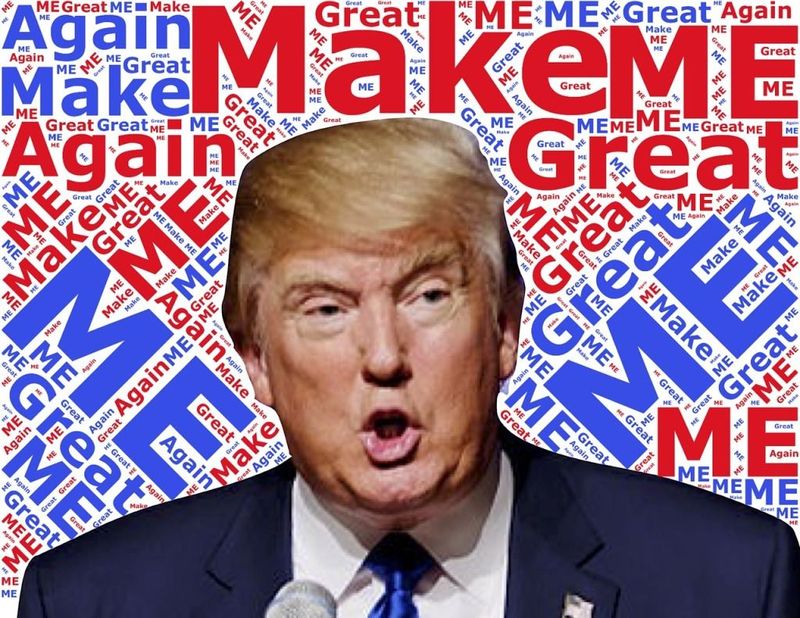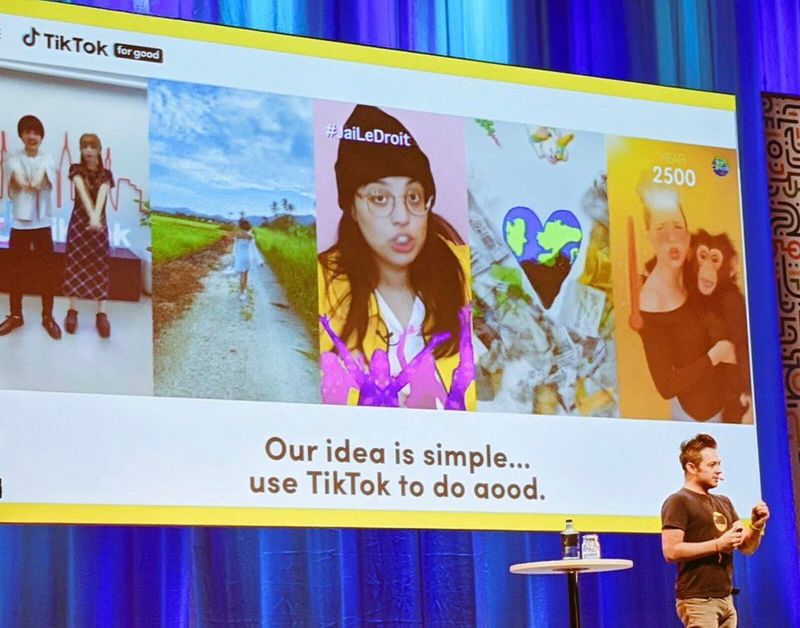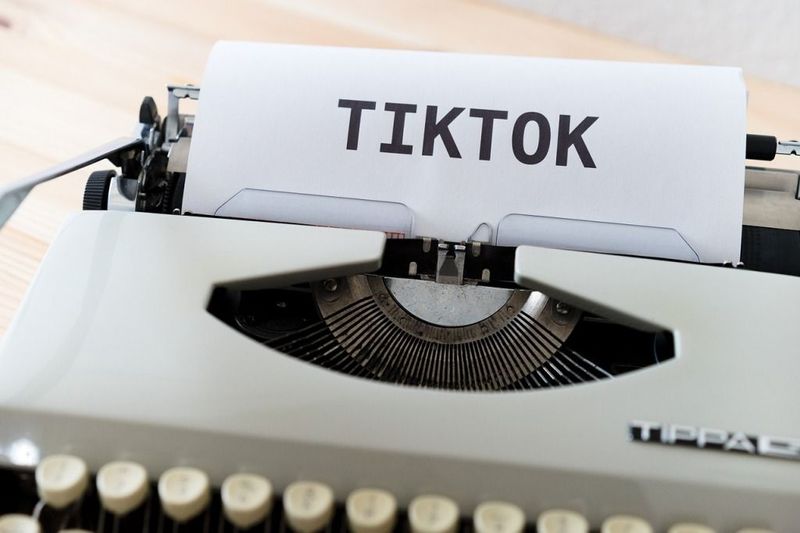icon
password
Multi-select
tags
ID
type
status
slug
summary
category
date
Author
URL
However, the Chinese government will not allow this to happen, especially soft pornography and sometimes vicious moral incidents, such as a time when Douyin used content about Chinese martyrs to make funny advertisements, which was considered inappropriate by many users.
In 2019, FTC began to investigate TikTok’s acquisition of Musical.ly. Due to various reasons, the situation intensified at the end of 2019, and the use of TikTok was banned by the US State Department, the Department of Homeland Security, the Army and Navy, and so on.
In July this year, US Secretary of State Pompeo and White House Chief of Staff Meadows released the news one after another, saying that they were “about to” introduce more stringent “ban” measures on TikTok. Subsequently, it was rumored that ByteDance, the company who owns TikTok, was preparing to spin off TikTok’s US business, which was acquired by Microsoft. The rumors were all the rage for a moment, and ByteDance was noncommittal about it and seemed to acquiesce in the rumors to be true. On July 31st, Trump said he would ban TikTok from operating in the United States. A day later, it was rumored that ByteDance had agreed to completely divest TikTok’s operations in the United States, but takeover talks were suspended because of Trump’s opposition.
Then came the catwalks of American companies such as Microsoft, Apple and Wal-Mart, using acquisition rumors to drive up share prices, as well as some ridiculous news. For example, Trump said part of the amount of the deal needs to be handed over to the U.S. Treasury because the U.S. government brokered the deal.

But after two months of absurd news, the TikTok incident ended up with no substantive results. Although Oracle and TikTok have reached some kind of agreement to ensure the safe operation of TikTok in the United States, this is a far cry from the initial acquisition rumors. In the process, however, Americans have seen a lot of fun: on the one hand, TikTok users are dissatisfied with news such as a “ban on operations”; on the other hand, several stock market rumors have once again made securities traders a lot of money.
However, what do the Chinese think of it? I can simply sum it up to you: the reaction of the Chinese is stronger than that of the Americans.
ByteDance
When you talk about TikTok, you have to talk about ByteDance. China is the birthplace of TikTok, but strictly speaking, TikTok cannot be used in China and is replaced by its local version-Douyin.
The reason is easy to understand. Even in foreign countries, the content and operation of TikTok are often criticized and punished because of piracy, pornography, vulnerable groups and so on. In China, where content restrictions and penalties are more stringent, it is clear that much of TikTok’s content cannot be presented directly to users, so ByteDance chose to run Douyin and TikTok separately.

However, TikTok is not even the only product causing trouble. ByteDance is a large Internet company famous for its product “Toutiao” (Headline), but its well-known app is not just Douyin and Toutiao. In the eyes of the Chinese government and most ordinary Chinese, ByteDance’s products and operations have the following characteristics:
- Takes up a lot of user time. Due to the mechanism of AI and algorithm, these software constantly recommend the content of user preference to users, which is easy to make users addicted to a certain extent.
- There are more vulgar contents. Low-cost soft porn and funny content has become one of the highlights to attract users.
- The level of professionalism is very poor. Reading news on Toutiao will cause most users to have serious misunderstandings about the news content.
- A lot of robot-crawling, quoting and plagiarism. ByteDance itself produces little content, but it provides users with a wide variety of content, partly from its user creation and partly from other communities.
- Almost unfettered by values, with a very low sense of morality. There is often content in these software that cannot be governed by law but is still very controversial, which is considered to be one of the means for ByteDance to attract users.
If you have used TikTok, you can probably understand the above phenomenon. These problems will only be more serious in China, where the legal system is not sound enough compared with North America.
You are reading Panda!Yoo
A blog about modern Chinese culture and consumption trends. If you are interested in Chinese food, drinks, games, movies, novels, dramas, please follow us.
Join 1,565 other subscribers
Of course, seriously, most users don’t care about these issues. For users who care about these problems, there are still many people who will continue to use ByteDance products. In China, users of Toutiao are considered to be less educated and less economically advanced. But the users of Douyin are not significantly different from those of Internet companies.
However, the Chinese government will not allow this to happen, especially soft pornography and sometimes vicious moral incidents, such as a time when Douyin used content about Chinese martyrs to make funny advertisements, which was considered inappropriate by most users.
As a result, many of ByteDance’s products have been temporarily removed from app stores. This is not only a punishment given to them by the Chinese government, but also an opportunity for them to fix their problems. However, other products are not so lucky, these products have been severely punished, and some have even been forced to stop operation forever, such as NeiHan Duanzi, which is famous for its pornographic content.
In addition, ByteDance is an Internet company that has been established for less than 10 years. Its history is not only much shorter than that of established Internet giants such as Baidu, Alibaba and Tencent, but also shorter than that of emerging Internet giants such as Meituan and JD.com. However, what ByteDance has achieved is unimaginable for many companies. Although ByteDance has not yet logged on to the stock exchange, many people believe that its revenue and profits have exceeded those of Meituan, JD.com and other enterprises, posing a direct challenge to Internet giants.
ByteDance in the company management, is also very utilitarian and low moral sense. The company refers to other internet companies and directly offers higher wages (usually more than twice as much, you know, the Internet is already a high-paying industry in China) to recruit strong employees from competitors. This made ByteDance resentful. On the other hand, because of the rapid development of the company, many early employees also became rich. It can be said that both ByteDance itself and its employees have suffered a certain degree of contempt in China. This disdain stems partly from its indeed controversial practices and partly from jealousy.
ByteDance’s “Martian” attempt
After talking about the performance of ByteDance in China, let’s take a look at how they develop outside China.
Before TikTok considered selling its US business, ByteDance made a lot of efforts to realize its dream of being a “global company”.
In August 2018, after ByteDance acquired Musical.ly, a well-known North American short video app, for $1 billion, Musical.ly and TikTok merged. After entering the North American market, TikTok became so popular that downloads soared and became the most downloaded APP in the United States in October of that year.
In order to gain a foothold in the United States, TikTok has hired law firm Knowl Gates as its government adviser since 2019.
In May, Kevin Mayer, a former Disney executive, announced that he would become COO of ByteDance and global CEO of TikTok. Then in July, TikTok announced that it already had 1400 employees in the United States and would continue to hire 10, 000 people in the United States over the next three years.
But long before all this, ByteDance planned to arrange for its Chinese employees to settle abroad, or even emigrate. There is no clear record of this process, but many rumors suggest that the practice may have lasted for more than five years. This is all in preparation for the smooth development of its business overseas.

There is no doubt that the degree of internationalization of ByteDance and its local operation level in various countries can be regarded as first-class among Chinese Internet companies. For comparison, Baidu, Ali, Tencent and others have all failed to build TikTok-level super app overseas. And there’s obviously a reason for this: getting Americans to be CEO, recruiting a large number of foreign employees to operate, and servers in foreign countries, may not be the most important. Most importantly, ByteDance does have earlier and more basic preparations for internationalization.
After the news of the acquisition broke out, many Chinese blamed ByteDance– for the specific reasons we will talk about in the next paragraph. At this time, Zhang Yiming, the founder of ByteDance and CEO, unexpectedly sent a very intriguing internal letter. The internal letter quickly circulated on the Internet, and netizens easily found that Zhang Yiming was still trying to promote the sale of TikTok in the internal letter. And, Zhang Yiming said, employees should have a “Martian” spirit.
The “Martian” spirit has actually been proposed within ByteDance for a long time. Zhang Yiming encourages his employees to give up their national identity and build an international company that is not country-centric. For example, although most of ByteDance’s staff and core team are Chinese, Zhang Yiming encourages communication in English during meetings. Zhang Yiming believes that if only Chinese communicate at the meeting, and foreign employees can only listen, the meeting will be very inefficient.
We must admit that this proposition is of great help to the internationalization of ByteDance. Not defaulting to being a Chinese company makes it easier for ByteDance to break into the international community and eventually achieve well-known app such as TikTok.
However, Chinese netizens have put forward a different view: the “Martian” spirit, which claims to be “not centered on a certain country”, is essentially a “Western” spirit that is “not centered on China”. To a large extent, this view is correct, because there is no “Martian” language in the world, let alone content, operations and markets that can be separated from a particular country and culture. Netizens pointed out bitterly that the essence of internationalization in Zhang Yiming’s mouth is only de-Sinicization.
And the Chinese government has obviously found that there is a discrepancy in the appearance of this kind of ByteDance. This creates more trouble for ByteDance-or rather, ByteDance deserves it.
What is a Chinese enterprise?
Chinese netizens and the Chinese government clearly believe that a company that does major business in China, earns most of its revenue in China and recruits mainly from China should not be openly proud of “de-Sinicization”. TikTok should not easily sell its core business to foreign capital, which is seen as a sign of political weakness.
Although from another point of view, we can think that ByteDance’s products and services are mainly provided to China, mainly pay taxes to China, and mainly provide jobs for Chinese people. This is a very normal operation, in fact, there is nothing to blame. The problem is that the principles that prevail in other industries do not apply to Internet companies, and ByteDance is clearly an Internet company.
It is easy to see that once Internet companies are multinational, they not only take up the time of users in other countries and make money from other countries, but also affect the minds of users in other countries. In fact, many people think that the idea spread by Internet companies is a kind of political propaganda, which is hard to deny at a time when well-known Internet products Facebook and Twitter are so close to politics.
[sociallocker id=”5614″]
Therefore, we can also see that many countries and regions are making efforts to support their own Internet enterprises, while imposing great restrictions and interference on foreign Internet enterprises. We will not discuss these issues in detail. Interested readers can compare the attitudes of China, the United States and the European Union towards foreign large Internet companies, and they will find that the three are surprisingly consistent.
Although Internet companies can claim to be “Martians”, their national attributes cannot be erased at all. Chinese netizens believe that TikTok originated in China and easily sold its business to Americans, which is tantamount to treason.
And the Chinese government has its own considerations. To be fair, the sale of TikTok will not bring any real loss to China. However, large Internet companies are resources that the Chinese government must control and cannot set a precedent for “selling to foreign countries” for TikTok. What’s more, when the voices of the people are so clear, why go against public opinion?
And we all saw it. Little more than a month later, China issued new rules banning the sale of certain technology-related assets. This is widely regarded as a restriction on TikTok. As soon as the ban came out, the sale of TikTok was out of the question, and that’s how it developed.
The whole story can be seen as a farce created by Trump pandering to some Americans, and the “canvassing” plot that often occurs in the US election year. However, for ByteDance, for Zhang Yiming, the impact of this incident is far-reaching. Many Chinese are beginning to realize its inconsistent “Martian” spirit and regard Zhang Yiming as politically weak and naive.
China is acceptable and willing to accept the rise of large Internet multinationals. But the premise is that since the company makes money in China, it must love China and regard itself as a Chinese company. For a long time, this concept cannot be changed-and perhaps it should not be changed.
[/sociallocker]
- Author:NotionNext
- URL:https://pandayoo.com/2020/10/24/what-do-the-chinese-think-of-the-tiktok-incident
- Copyright:All articles in this blog, except for special statements, adopt BY-NC-SA agreement. Please indicate the source!